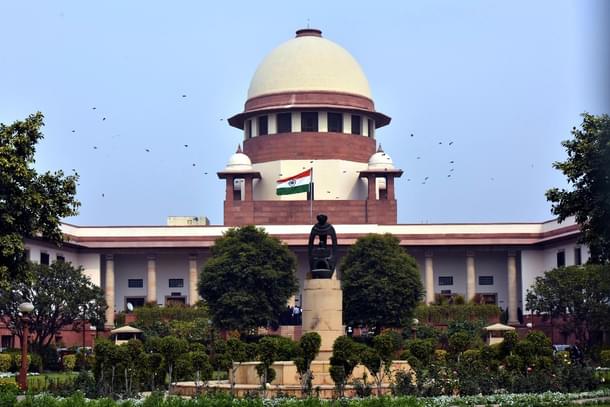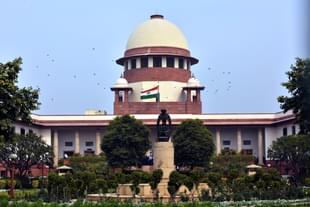News Brief
Supreme Court Forms Seven-Judge Bench For Money Bill Issue; Government Objects To Expedited Hearing
Nayan Dwivedi
Oct 12, 2023, 03:30 PM | Updated 03:30 PM IST
Save & read from anywhere!
Bookmark stories for easy access on any device or the Swarajya app.


The Central Government has raised objections over the Supreme Court's decision to expedite the hearing of the money bill issue, asserting that cases should not be prioritized based on "political exigencies", as reported by Live Law.
The Chief Justice mentioned the need to prepare these cases for hearings, instructing that documents, pleadings, precedents, and written submissions must be filed within three weeks.
The core of this issue centers around the classification of Money Bills, as defined under Article 110 of the Indian Constitution.
These bills specifically pertain to financial matters like taxation and public expenditure and enjoy immunity from amendments or rejection by the Rajya Sabha.
The controversy arose when the government attempted to introduce bills, such as the Aadhaar Bill, as Money Bills, seemingly to bypass the Rajya Sabha, where they lacked a majority.
The Electoral Bond scheme also faces challenges because amendments were introduced through a Money Bill.
The majority judgment in the Aadhaar case held that the Aadhaar Bill qualified as a Money Bill. Justice Chandrachud dissented, emphasizing that the word 'only' in Article 110(1) should be considered when deciding if a bill is a Money Bill.
Additionally, Congress leader Jairam Ramesh has welcomed the Supreme Court's decision to assemble a seven-judge bench, presided over by the Chief Justice of India, to address his petitions.
Jairam Ramesh has been vocal about this issue, raising it both within the Parliament and through three petitions filed in the Supreme Court.
His first petition, filed on 6 April 2016, seeks to rectify what he sees as an unconstitutional method of passing key Bills.
Among the examples he cites are the Aadhaar Bill, a Bill that curtails the powers of various tribunals, including the National Green Tribunal, and a Bill aimed at making the Prevention of Money Laundering Act more stringent.
The establishment of a seven-judge bench to address this matter is a significant development that could have profound implications for how the Parliament operates.
Nayan Dwivedi is Staff Writer at Swarajya.





